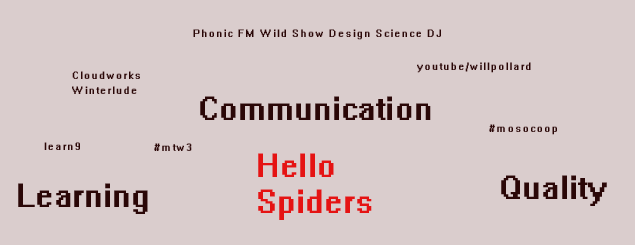John Burgoyne comment has too much agenda for #mtw3 except online
I also have a 'dropbox' file on this stuff, send me your email to my email as above if you want me to join you to this.
here is my current thinking:
Where is it and where should it be going?
Three main inter-related strands:
1.) More scientific leadership (as well as human relations)
2.) More ethical etc. leadership as above
3.) Virtual leadership, ditto
Mapped into these themes:
1.) Castels – history of the internet
2.) Zuboff – automate to informate, new form of virtual leadership still to come?
3.) Generation Y etc.
4.) Changing nature of followers
5.) Greening etc.
6.) Weakening of the professions?
7.) Adaptive innovation
8.) Outsourcing
9.) Learning organisation / dynamic capability
10.) Student (?) theory
11.) Structure and culture
12.) Adult education?
13.) Miniaturisation / lean
14.) Intellectual property and the knowledge economy
15.) Meaningfullness
16.) Changing sources of power for leadership
17.) Correspondence theory
18.) Leading a purposeful workforce
19.) Leadership of social movement
20.) Requisite variety
21.) Elephants and fleas
22.) ARM (what is this?)
23.) Critical realism in general
24.) Darwin, Maturana and Valera and Bateson. Evolution, autopoesis and larger units of survival
25.) Evolutionary psychology? (ref. Nicholson)
26.) Asda example (what was this about?)
27.) Individual, team, task and technology
28.) Actor – network theory?
29.) More on Dewey?
30.) Informated economy
31.) Franchising
32.) Making and trading (don’t forget the latter)
33.) Political and economic history (one for David!)
34.) History of war?
35.) Pre-human, hunter-gathering, agriculture, manufacture, mento-facture (knowledge economy and work), spiroculture / identity culture (meaningfulness)
36.) Global / cross cultural issues. Developed, de-developing, developing economies. Following same route and jumping over stages? Global managerial/leadership culture.
37.) Social and human capital
38.) Leadership as the origin, the primary source or the final cause (too theoretical/philosophical. Grint on the bow-wave pulling the ship along and the ship shaping how the captain steers it (never got this, may not have got it right).
Implications for Leadership Development
Cover content and process as above.
More when we are clearer about implications of what
Quote paper ‘how can you develop leadership if you don’t know what it is?’. The implication of the paper is that you can’t, but one argument (with which I agree) is that you can through action learning (and coaching and mentoring, the ‘context sensitive methods’- have ref.). The argument is that these methods get round the problem by saying that ‘leadership is what leaders do, individually and collectively, but who do you count as a ‘leader’ in the first place, the problem does not go away!).
Virtual development processes needs to be discussed.
Does the leadership pipeline assume a declining form or organisation (or not)?
Why are the new organisations, google, eBay, facebook etc. largely or entirely absent from Business School client lists (need to check if this is true, think it is).
